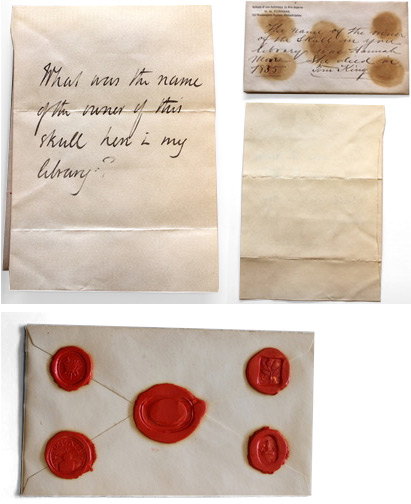Spiritualism became very popular in America in the 1850s and continued to be influential for decades afterwards. Although there were certain commonalities, Spiritualists did not share any particular theology. The only thing they had in common was the belief that it was possible to communicate with the spirits of the deceased through mediums (people who claimed to be able to communicate with the dead). This took place at seances, in which various techniques were used, such as the spirit supposedly speaking through the medium, or the medium writing the spirit's words on slates in answer to queries from those attending the seance.
Henry Seybert (1801-1883) was a Spiritualist who endowed a chair in philosophy at the University of Pennsylvania on the condition that the university set up a commission to investigate Spiritualism. A year after Seybert's death the commission was established. It consisted mostly of University of Pennsylvania scientists and operated for two years. Among other things, the commission investigated Spiritualist slate writing and mediums who claimed to be able to answer questions sealed in envelopes by consulting the spirits.
In the photographs, you can see a question written by one of the members of the Seybert Commission, the Shakespearean scholar Horace Howard Furness (1833-1912). He asks, "What was the name of the owner of this skull here in my library?" The reply, written on the ourside of the envelope and received from a spirit called John King, was that it was the skull of Hannah Moore, who died in 1835, probably a reference to the English playwright and philanthropist (1745-1833). Another photo shows the red seals of the envelope, which are intact. (The letter was opened with a paper knife.) In the other two pictures you can see slates that were used in the testing of the mediums. On one is a question that was asked by the investigator and on the other the the reply given by the medium.
The members of the commission signed a preliminary report in 1887 in which they concluded that fraud had been used in nearly every case they had tested. In addition to the materials I have noted here, the Seybert Commission archive includes a very large number of letters and documents. It provides a fascinating snapshot of American Spiritualism in the late-nineteenth century.

